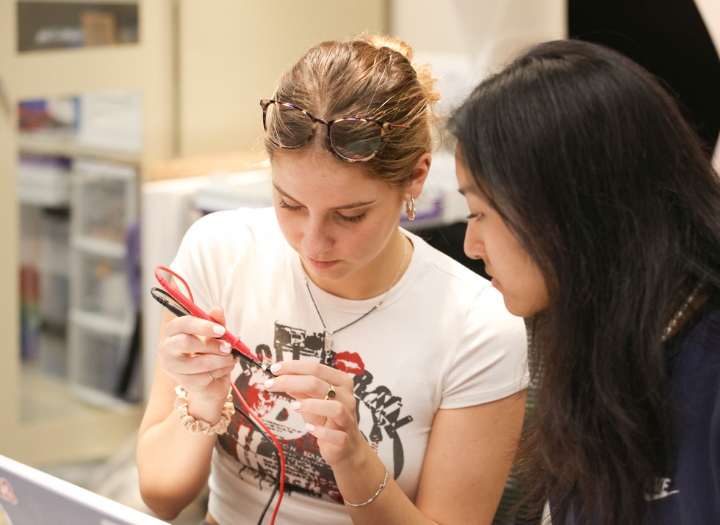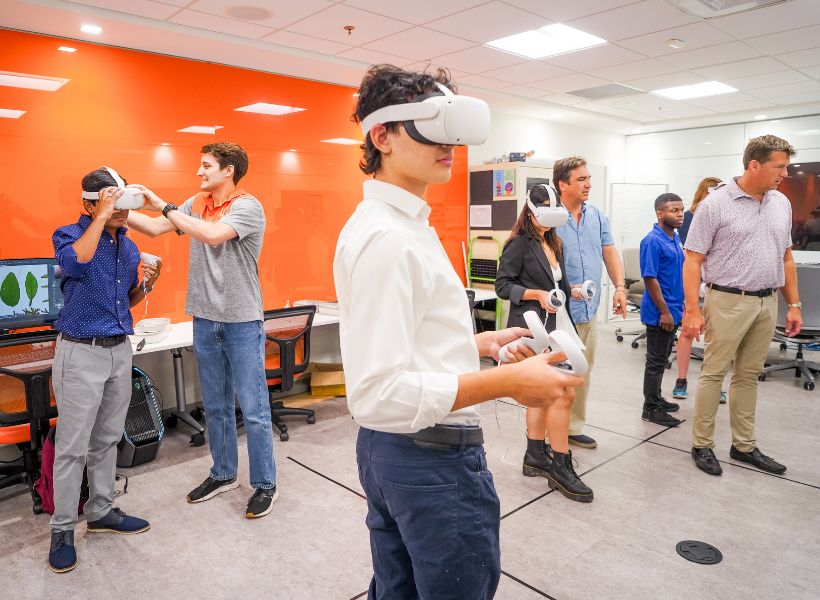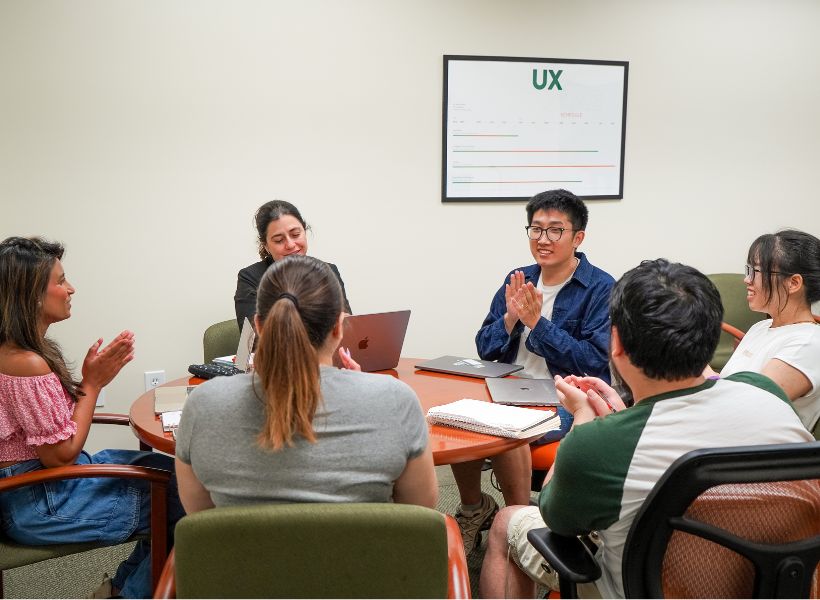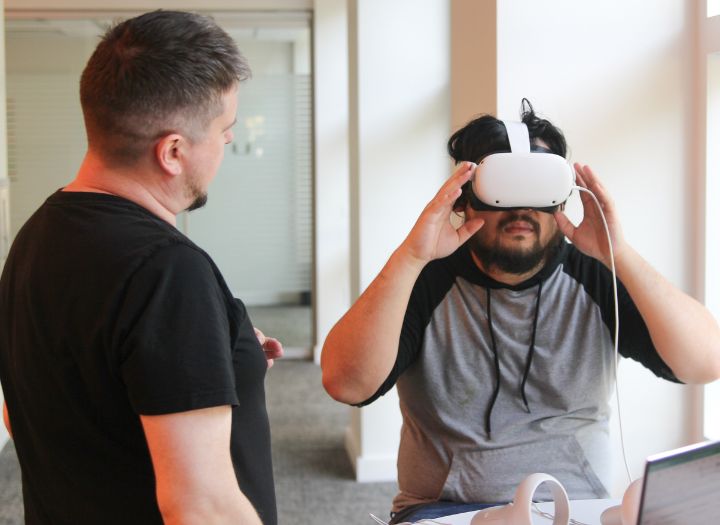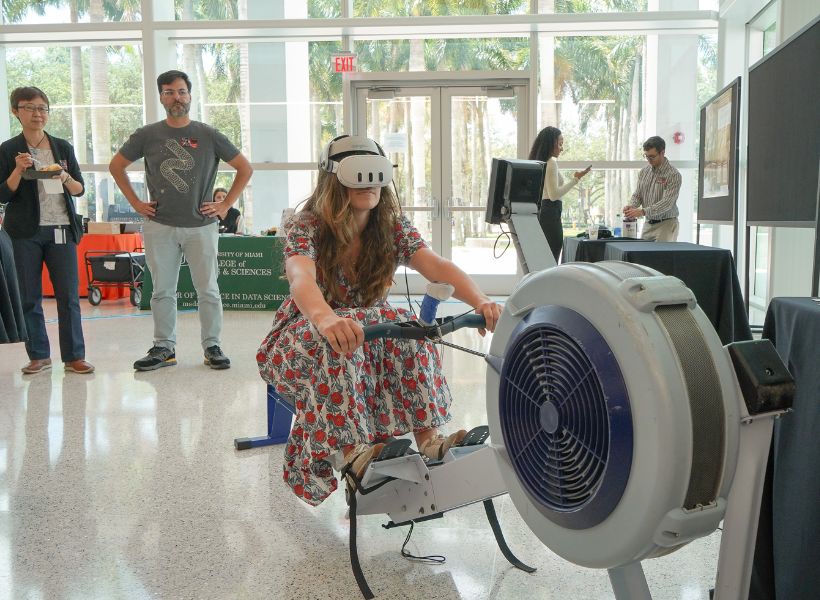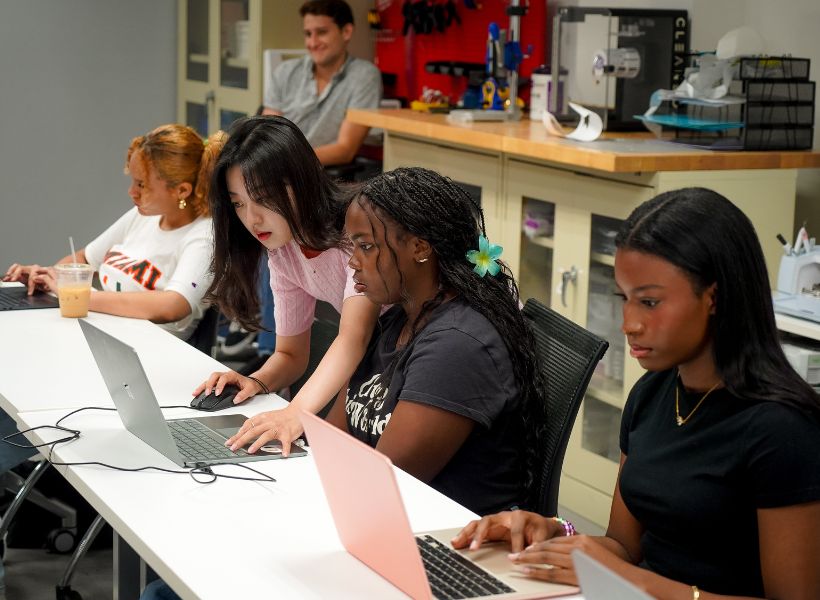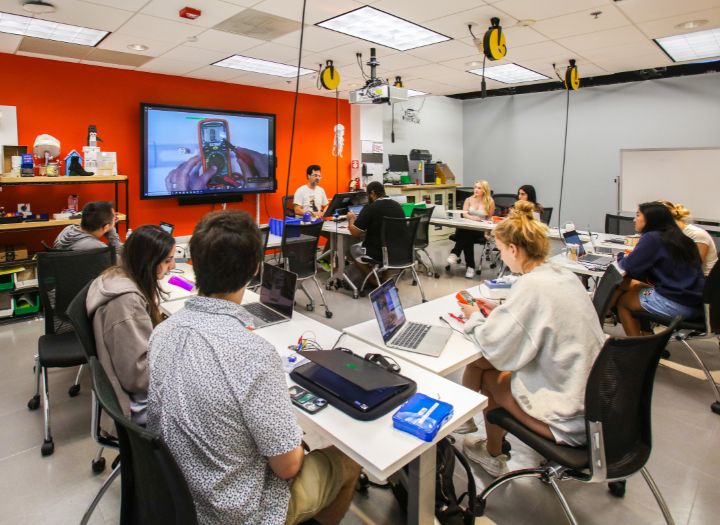
The Princeton Review named the University of Miami a top Game Design School in 2024.
Pursue a track that aligns best with your post-graduation plans and career goals.
Tinker, create, and collaborate in cutting-edge labs and spaces across campus.
Create, Innovate, and Design Immersive Experiences
With Designer and Developer tracks, the Immersive Media, B.S.C. program prepares students to excel in VR, AR, and immersive content creation. Students apply cutting-edge technology and design thinking to innovate across industries, from education to entertainment.
Discover some of the featured courses:
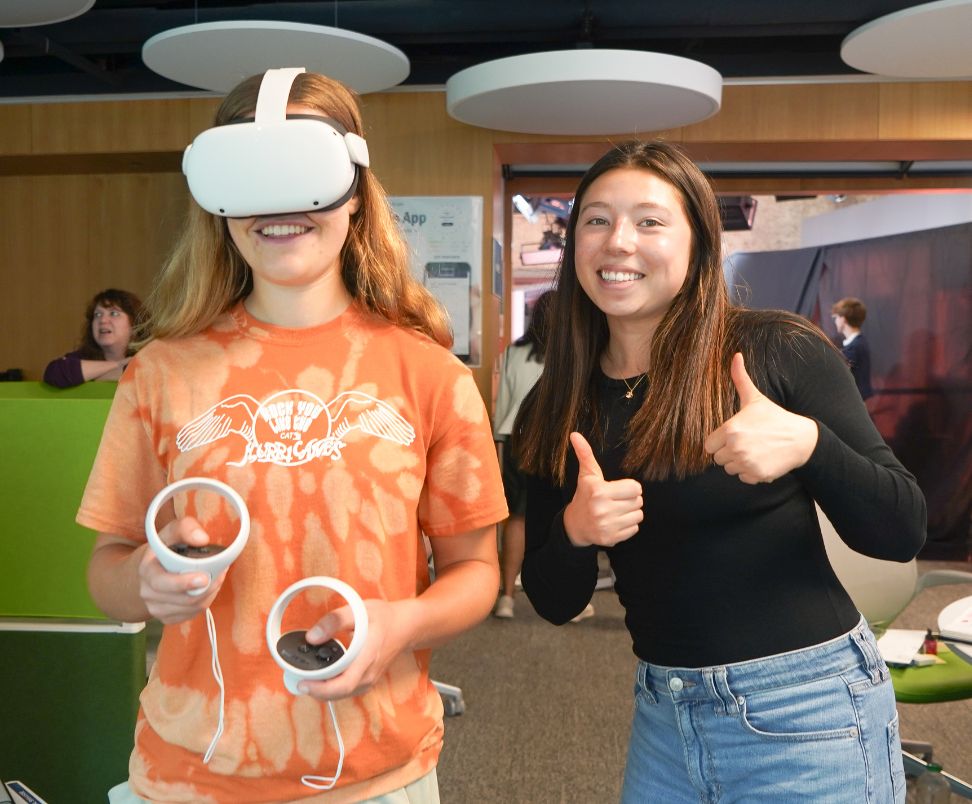
Kim Grinfeder
Professor, Department Chair
grinfeder@miami.edu | (305) 284-6253
Tracks
Designer
Developer
Related Minors
Interactive Media
Game Design
See all minors
Hear from Lorena Lopez, Program Coordinator for the Immersive Media major, as she describes the types of students this unique major attracts, and what career outcomes are possible after graduation.
Building Virtual Worlds
Step into the future with Building Virtual Worlds! This course teaches you how to create interactive 3D environments using a game engine, allowing you to design worlds that users can explore on both virtual and mixed reality platforms.
